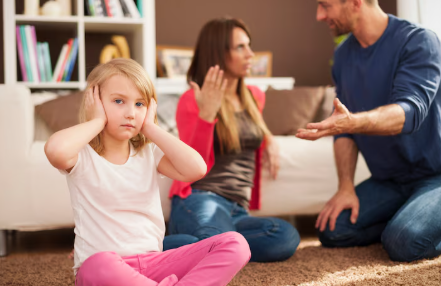Welcome to our mental health blog!
Never stop learning with our blog bites. Here, we'll share strategies and insights into counselling, psychotherapy, psychology and common concerns. From relaxation strategies and self-improvement tools to managing anxiety, depression or other mental health concerns, as well as introductions to different therapeutic approaches, we’ve got it all covered!
Looking for a particular topic? Use the search bar and hit enter!
Breathe for Calm: Family Emotional Health
In today’s fast-paced world, many children and parents feel overwhelmed, anxious, and constantly “on edge.” The good news is that calm can begin with something as simple as a breath. Counsellor & Parenting Coach introduces easy, science-based breathing techniques families can use together to strengthen emotional regulation, reduce stress, and build lifelong resilience.
Love Maps: Our Internal World in a Relationship
Many couples talk every day yet feel increasingly misunderstood. Over time, assumptions replace curiosity, conversations become task-focused, and emotional distance quietly grows. Counsellor, Lim Swee Chen, explores the powerful concept of Love Maps, developed by Dr. John Gottman, and how updating them helps couples rebuild emotional closeness, deepen understanding, and stay connected through life’s changes.
What Does It Mean to Be a Man Today?
Many men are taught to be strong, silent, and self-reliant — but few are taught how to cope when life, relationships, and fatherhood feel overwhelming. Counsellor & Psychotherapist, Ben Ang, explores how traditional masculinity shapes men’s emotional lives, why anger is often misunderstood, and how redefining strength can create healthier men, families, and relationships.
Parenting Across Cultures: When Your Upbringing Collides With Your Partner’s
Many couples are surprised when parenting becomes the first major stressor in an otherwise strong relationship. What once felt easy and aligned suddenly becomes tense when bedtime routines, discipline, or school expectations trigger deeply rooted instincts from each partner’s upbringing. These moments aren’t signs of incompatibility—they’re reflections of two family cultures meeting in real time. Counsellor, Soolin Choi, discusses understanding where these instincts come from as the first step toward parenting as a united team.
When Sex Disappears and Nothing Is “Wrong”
When sex quietly fades from a relationship, it often brings confusion, shame, or self-blame—especially when “nothing is wrong.” Sex Therapist & Relationship Counsellor, Dr Martha Tara Lee, discusses low desire is rarely random. More often, it’s a signal about stress, safety, emotional load, or how the relationship has changed over time. Understanding why desire disappears is the first step toward clarity, compassion, and a healthier connection.
Skip the Resolutions: How Counselling Can Create Lasting Change in the New Year
Every January, millions of people promise themselves a fresh start—only to feel guilty, stuck, or overwhelmed just weeks later. If you’re tired of repeating the same cycle each year, you’re not alone. Real, sustainable change doesn’t come from resolutions or willpower. It comes from understanding yourself more deeply. Before setting another goal you won’t keep, discover how counselling can help you make meaningful, lasting change that aligns with who you truly want to be with psychologist, Ho Shee Wai.
Navigating Change in Long-Term Relationships
After years together, every couple experiences shifts—some expected, some surprising. You may still love each other deeply, yet feel more like teammates than partners. You may notice more distance, fewer conversations, or a growing sense that life is about managing, not connecting. If this resonates, it doesn’t mean your relationship is failing. It means you’re human, and your partnership is evolving. Counsellor Lim Swee Chen explores why long-term relationships change and how couples can reconnect with empathy, curiosity, and intentional effort.
Modeling Holiday Priorities: How Parents Can Create Calm, Connection & Meaning for Their Kids
The holiday season promises joy, connection, and festive magic—but for many parents, it also brings overstimulation, expectations, and an endless to-do list. Children don’t learn holiday values from what we tell them; they learn from what we model. When our behaviour shows connection, gratitude, empathy, and emotional regulation—even in busy seasons—we give our children a powerful roadmap for how to navigate stress and celebrate meaningfully. Counsellor & Parenting Coach, Paula Brunning, discusses what will help you prioritise what truly matters and teach your children the heart of the holidays through your everyday actions.
Finding Stillness: How Vipassana Meditation Can Better Mental Health
In a world that rarely slows down, many of us crave a moment of quiet—time to breathe, feel grounded, and reconnect with ourselves. Vipassana meditation offers exactly that. Through simple, steady awareness, it helps you clear mental noise, regulate emotions, and rediscover the parts of yourself that stress has overshadowed. If you are longing for inner stillness, psychotherapist & counsellor, Shifan Hu-Couble discusses how it may be the doorway home.
A Psychological Guide to Creating Christmas Magic for Your Children
Let’s explore the psychology behind why Christmas feels so powerful for children, how to support their emotional needs during the holidays, and how to create that Christmas magic to make this season more meaningful (and manageable) for your whole family.
What Are Attachment Styles — and Why They Matter in Love
Attachment styles quietly shape how we love, how we argue, and how close we allow ourselves to be. Most people don’t realise that many of their reactions in relationships—pulling away, overthinking, seeking reassurance, shutting down—can be traced back to early relational experiences that taught them what to expect from others. Counsellor, Soolin Choi, shares how these patterns were once survival strategies, not character flaws. Understanding your attachment style isn’t about assigning blame; it’s about learning the emotional language you’ve been speaking all along, and discovering how to build safety, closeness, and connection in a way that actually fits the way your nervous system works.
Neurodivergent vs Neurotypical: Key Differences, Real Strengths & How to Celebrate Brain Diversity
Brains do not come in one default setting. The terms neurodivergent and neurotypical help us name something that has always been true—some people’s brains process communication, learning, senses, and structure differently, often bringing exceptional strengths like creativity, hyperfocus, and detail-driven problem solving, while navigating invisible barriers in education, workplaces, and social expectations built around “typical” norms. Counsellor Lim Swee Chen helps you understand these differences without judgement, reframe challenges with compassion, and discover the joy that comes when you stop masking or comparing, and begin celebrating brain diversity in yourself, your children, and your community—especially across Singapore and Malaysia where cross-border adults are increasingly exploring their neurodiversity journey later in life.
Parental Guilt: Why It Shows Up & 7 Proven Ways to Soften Its Grip (Even When You Feel Like You’re Failing)
Parental guilt shows up in the smallest moments—a sharp tone you regret, a milestone you fear you missed, or the quiet sting of comparing your real life to someone else’s curated parenting highlight reel. It’s one of the most universal yet least openly discussed parts of being a parent. Guilt isn’t proof that you’re failing—it’s evidence that you care deeply and want to protect, show up, and do right by your child. But when guilt becomes automatic and constant, it can drain confidence, overload your nervous system, and turn everyday parenting into a heavier emotional load than it should be. This article unpacks why guilt appears, the thinking traps that keep it looping, and the gentle, therapist-approved ways to soften its grip so you can parent from connection, resilience, and self-compassion—without chasing an impossible standard of perfect with Counsellor, psychotherapist, & parenting coach, Shifan Hu-Couble.
Reviving Your Connection: How a Sexologist Can Help You Reignite Intimacy
Feeling close but miles apart? A sexologist offers a safe, practical path to rebuild trust, desire, and connection—so intimacy feels natural again. Learn how with Clinical Sexologist & Relationship Counsellor, Dr Martha Tara Lee, of The Counselling Place Singapore.
How Unhealthy Thinking Fuels Mental Health Challenges (And How CBT Helps)
Unhealthy thinking patterns often operate beneath the surface of mental health struggles, quietly shaping our emotions, decisions, and relationships. In psychology, these habitual errors are known as cognitive distortions—biased mental shortcuts that twist how we interpret ourselves, others, and life events. While everyone experiences them occasionally, when distortions become automatic and repetitive, they can fuel depression, intensify stress, and drain hope. The good news? These patterns are learned, meaning they can also be unlearned. With the right tools, especially Cognitive Behavioral Therapy (CBT), distorted thoughts can be challenged, reframed, and replaced with healthier perspectives that lighten emotional burdens and restore a sense of control. Learn how with Counsellor, Paula Brunning, of The Counselling Place Singapore.
Asking Questions as a Strategy to Build Cooperation and Problem Solving in Your Child
Instead of telling your child what to do, try asking questions that spark thinking, problem solving, and confidence. Discover how curiosity-based parenting builds independence and strengthens your bond with Counsellor & Parenting Coach, Paula Brunning.
How to Support your Partner Through an Alcohol Use Issue
Supporting a partner through alcohol concerns can feel overwhelming, but understanding Alcohol Use Disorder and its impacts is a powerful first step. Whether you're just recognizing early signs, or navigating long-standing challenges, this blog post offers practical strategies and hope for moving forward together.
A necessary step towards trauma healing: cut ties with toxic parents
Cutting ties with toxic parents isn’t impulsive—it’s often a trauma-informed step toward safety, clarity, and healing. Learn how no-contact can protect your peace with psychotherapist & counsellor, Shifan Hu-Couble.
When One Partner Isn’t Ready: How to Understand & Ease Resistance to Couples Therapy
It’s common for one partner to feel ready for couples therapy while the other feels unsure, anxious, or defensive. This doesn’t mean they don’t care — often, it means they are afraid of being blamed, judged, or misunderstood. In this article, Counsellor Lim Swee Chen explores where that fear comes from and how couples can approach therapy together in a way that feels safer, more respectful, and collaborative.
Balancing Love and Limits: Setting Boundaries as a Caregiver
Love sustains caregiving—but without boundaries, love alone can’t prevent burnout. This guide by Counsellor, Soolin Choi, shows how to set kind, practical limits that protect your health and the relationship you’re caring for, with scripts, small steps, and guilt-taming reframes.




















